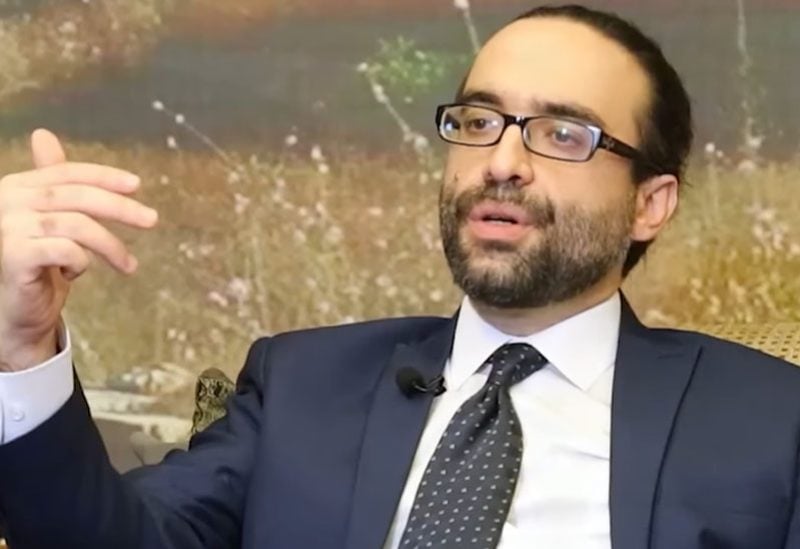The Fall of the “Hezbollah State”?
Dr. Ali Khalifa/Nidaa Al-Watan/May 23/2025
سقوط دولة حزب الله؟
د. علي خليفة/نداء الوطن/23 أيار/2025
دولة “حزب اللّه” هي اليد الغليظة للنظام الإسلامي في إيران الممتدّة إلى لبنان. انتزعت الشيعة اللبنانيين من مجتمعهم واغتالت تاريخهم الثقافي والاجتماعي، ومنعت إقامة النظام عبر تعطيل آلياته وتعليق الدستور. وأنشأت أنظمة رديفة على جثة الدولة اللبنانية وأدوارها. فاستفحلت “المسألة الشيعية” حدّ تحويل لبنان إلى “مجتمع بلا دولة”، مجتمع الدم، ومدرسة التعبئة، واقتصاد العقوبات، وثقافة النمط الموجّه… تلك عناصر دولة “حزب اللّه”.
إن حرب الإسناد التي جعلت من الشيعة اللبنانيين وقوداً لمشروع إيران ومصالحها، أَوْدَت أيضاً بـ “حزب اللّه” إلى مقتلته. خسائر غير مسبوقة بالبنية العسكرية والمالية وتداعي المنظومة كلّها التي أقام عليها “حزب اللّه” دولته وغلواءها.
مع استشراف ما بعد سقوط دولة “حزب اللّه”، يجب أن يخرج مشروع سياسي من الطائفة الشيعية بوجه “الثنائي”، ومشروع ثقافي يُحاكي الحداثة ويصالح مفاهيمها مع الفقه الشيعي، في سبيل تخطّي “المسألة الشيعية” واستعادة الدولة في لبنان فلا تكون مقتلة “حزب اللّه” هزيمة للشيعة.
كتب العلّامة السيد محمد حسن الأمين، بفمٍ مفوّه وحادّ، وخطاب صادق النبأ، وريشة راسخة ومتبحّرة في العلم، وقلبٍ نابض بالحب والقيم الإنسانية، إن “سلطة الحق الإلهي هي مؤامرة على التشيّع”… والعلّامة الأمين، في موقفه هذا، يشهر تصوّراً فذاً لتجديد الفكر الديني الإسلامي وتنزيهه عن طموح الحكم. وموجباته التصالح مع العلمنة التي عاداها بعض المتديّنين وعلماء الدين المسلمين، بينما بَنَت عليها الحداثة مقاربتها للدولة بأدوارها كافة كجهاز ناظم للمجتمع. وخيط الربط يطول بين المصطلحات المفتاحية والقاعديّة للحداثة، من العلمنة والدولة، إلى المواطنة والعيش معاً. إذ تصبح جميعها مفاهيم ناجزة في ظلّ الحداثة، ومعها الدين في الحداثة كمعطى ثقافي في المجتمع وكخيار فردي للإنسان.
بدوره العلّامة الشيخ محمد مهدي شمس الدين، أخذ جوانب لا تقلّ أهمية في مقاربة قضايا وإشكاليات متعدّدة في سبيل توفير فرص ليخرج من الفقه الشيعي مشروع ثقافي يحاكي الحداثة. رفض العلّامة شمس الدين فكرة الولاية العامة للفقيه واعتبر الولاية للأمة بمجموع أفرادها.
وكذلك، العلّامة السيد علي الأمين كتب عن مفهوم ولاية الدولة باعتبارها الجهاز الشرعي الناظم للمجتمع من خلال القيام بأدوار ووظائف حصرية. ثمة ما يمكن استلهامه إذن على سبيل تقديم تأصيل فقهيّ يلاقي العقل السياسي الغربي في تعريف الدولة، ببعده الفلسفي والسياسي العملي ويجعل اللبنانيين الشيعة جزءاً من المشروع اللبناني. هكذا تصبح مصائب دولة “حزب اللّه”، عند الدولة اللبنانية والطائفة الشـيعية، فوائد.
The Fall of the “Hezbollah State”?
Dr. Ali Khalifa/Nidaa Al-Watan/May 23/2025
(free translation from Arabic by: Elias Bejjani)
The so-called “Hezbollah State” is nothing less than the iron fist of Iran’s Islamic regime extending deep into Lebanon. It has uprooted Lebanese Shiites from their society, erased their cultural and social legacy, and blocked the establishment of a functioning state by paralyzing its institutions and suspending its constitution. In its place, it built parallel structures atop the corpse of the Lebanese republic. Consequently, the “Shiite issue” has escalated to a point where Lebanon has become a “society without a state”—a society of blood, indoctrination, sanctions-driven economics, and a culture of conformity. These are the defining elements of the “Hezbollah State.”
Yet the very proxy war that turned Lebanese Shiites into fuel for Iran’s ambitions has brought about Hezbollah’s own downfall. The group now faces unprecedented losses—militarily, financially, and structurally—leading to the collapse of the very system it used to construct its pseudo-state and project arrogance.
In the wake of the fall of the “Hezbollah State,” a new political project must arise from within the Shiite community—one that counters the “duopoly” and offers a cultural vision that reconciles Shiite jurisprudence with modernity. This would allow Lebanon to move beyond the “Shiite issue” and rebuild its state, ensuring that Hezbollah’s demise does not translate into a defeat for the Shiites themselves.
Scholar Sayyed Muhammad Hassan al-Amin once wrote with eloquence, sharp insight, and a heart full of human values: “The authority of divine right is a conspiracy against Shiism.” In this powerful statement, al-Amin offered a visionary call to renew Islamic thought and cleanse it of its obsession with political power. He advocated for a reconciliation with secularism—often rejected by religious leaders and Muslim scholars—yet foundational to modern conceptions of the state. Key terms of modernity such as secularism, the state, citizenship, and coexistence are anchored in the understanding that religion, in a modern society, is a cultural constant and a personal choice.
Similarly, the scholar Sheikh Muhammad Mahdi Shams al-Din tackled essential issues with the aim of paving the way for a cultural renaissance rooted in Shiite jurisprudence and aligned with modern values. He rejected the doctrine of the general guardianship of the jurist, asserting instead that guardianship belongs to the people.
In the same vein, Sayyed Ali al-Amin articulated the notion of state guardianship as a legitimate regulatory authority, exercising exclusive responsibilities and functions. His writings offer a framework that could provide jurisprudential grounding compatible with Western political philosophy and practice, allowing Lebanese Shiites to fully integrate into the national project. In this light, the collapse of the “Hezbollah State” could be transformed into an opportunity—one that serves both the Lebanese state and the Shiite community.






















